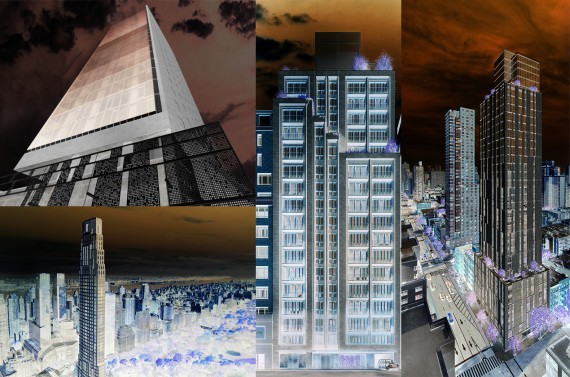Comedian Lewis Black once described New York as the “loudest city on the planet Earth,” saying: “They literally have guys come with jackhammers and they drill the streets and just leave cones in front of your apartment; you don’t even know why.”
Residents and city officials have always griped about the barrage of night-time construction going on throughout the city, pointing to a flood of after-hours permits and blaming the Department of Buildings for issuing the variances too freely.
Developers and contractors who abuse the permits — by, for instance, working outside its time confines or creating excessive noise — can face fines, or more radically, have their permits revoked. But an analysis by The Real Deal of DOB data shows that the agency rarely revokes the permits, even when the volume of annual permits exceeds 50,000.
The DOB issued 59,895 after-hour permits in 2015, roughly 10,000 more than it issued the previous year. But the agency revoked just 18 permits last year, according to data provided to TRD through a Freedom of Information Law request. A spokesperson for the agency said that the revocations are site-specific and don’t have a fixed timeline. The DOB will consult with local officials before determining if a permit can be reinstated.
Sites with revocations in the past two years have included projects like Vornado Realty Trust’s [TRDataCustom] 220 Central Park South, which had three revocations in 2014; the Naftali Group’s 221 West 77th Street, which had three revocations in 2015; and Anbau’s 360 East 89th Street, which had six in 2015. Anbau’s permits were revoked in November of last year, around the same time that several residents and businesses around the project complained of excessive noise and light coming from the construction site. These developers, as well as, seven other contractors and developers that TRD reached out to for this story, either declined to comment or did not return phone calls.
The DOB said in March that it was assessing how it approves variances for construction done “after hours” — defined as between 6 p.m. and 7 a.m. on weekdays or at any hour on weekends. A spokesperson for the agency said that analysis is ongoing.
Of the 3,773 construction-related noise complaints in 2015, only 54 violations were issued after the Department of Environmental Protection investigated the claims, the DOB said.
“Abuse of the permits is infrequent based upon existing data,” the DOB spokesperson said. Most permits that are revoked and refused renewal, the spokesperson added, “result after problems have escalated to the point that it becomes a habitual community nuisance.”
Richard Lambeck, a professor at New York University’s Schack Institute of Real Estate, said the low number of revocations is likely due to the fact that the DOB can’t adequately police the massive amount of construction in the city — construction starts, according to the New York Building Congress, hit nearly $41 billion in 2015.
“Instead of being proactive, they are only reacting when a problem occurs,” he said. “So much work is being done, and a lot of time the DOB doesn’t want to constrict contractors from working.”
A former high-ranking city official, who asked not to be identified due to the controversial nature of the after-hour permits, said the low number of revocations is more likely due to the fact that permits are renewed every two weeks. Meaning, if a particular site is causing trouble, the DOB more often opts not to reissue a permit rather than revoke an already-approved one.
At Hidrock Realty’s project at 133 Greenwich Street, for example, Cava Construction, now owned by Omnibuild, was issued 120 after-hours variance permits over two years of construction. Between February and April last year, the permits were revoked twice and denied another four times. Omnibuild says those revocations happened when another project on the adjacent block, 22 Thames Street, ramped up production just 15 feet away. The site had “several large drill rigs, a crane and numerous deliveries of caisson pipe,” Paul Foschi, Omnibuild’s vice president of construction, said in an email, “With both projects in full swing there were over 190 combined workers on some days.”
The city revoked some of the after-hours variance permits until both projects were able to form a “joint safety plan” to allow large numbers of staff and machinery to work in “close proximity,” Foschi said.
After-hours permits have also come under fire from some city officials, such as New York City Council member Rosie Mendez. In 2014, Mendez introduced a bill to set new standards for the permits, but it never left committee. A revised draft of the bill — with changes Mendez made after consultation with developers, unions and the Real Estate Board of New York — is currently being reviewed by the city’s lawyers. It’s due back in the coming weeks, she said.
The bill in its original form was too rigid, Mendez admitted. “We were curtailing some of the after-hours variance where we didn’t want to,” she said. Mendez concedes there are some circumstances when after-hours construction is unavoidable. However, she said the paltry number of revocations issued by DOB in 2015 illustrates a failure to properly examine applications and to grant them on merit.
“It just proves our point that these permits are automatic,” Mendez said. “All you have to do is apply and you will get it.”
Council Member Daniel Garodnick, a co-sponsor of the bill, could not be reached for comment.
The amended bill is due back from the city’s lawyers in the coming weeks. Mendez said it will strike a “middle ground” by protecting residents from excessive construction noise without unnecessarily slowing development.
“Granted it’s the city that never sleeps, but that doesn’t mean New Yorkers don’t deserve a good night’s sleep,” she said.
Correction: An earlier version of this story misidentified the agency that issues noise violations. It’s the city’s Department of Environmental Protection.
